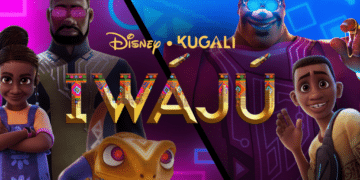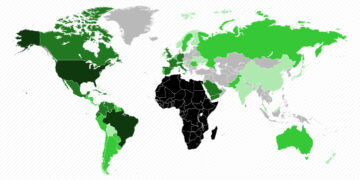We’ve certainly got our eye on Emmanuel Njoku, who has kept Africa’s startup community agog in the past year after he took the crypto world by storm.
The 19-year-old tech guru is the CEO and co-founder of Lazerpay, a crypto payment platform enabling cross-border payments for merchants in Africa. The company, which he co-founded with Abdulfatai Suleiman and Prosper Ubi, launched in October 2021. And, as of April 2022, they had raised $1.1 million in funding, Njoku disclosed in an interview.
Njoku got the idea to start Lazerpay after experiencing payment issues when he was in Dubai and trying to transfer $250 to Techrity, a charity organization based in Nigeria. The process was exhausting and expensive. What’s worse, his $250 went missing amidst the transfer.
He soon realized it was a common problem—African merchants struggled to receive crypto payments internationally. So instead of enjoying the limitless possibilities for growth and expansion in a borderless internet-connected world, they were being forced to remain within the boundaries of their local environment. Njoku decided it wasn’t going to continue under his watch. And thus a messiah was born.
Today, Njoku is one of Africa’s most sought-after blockchain engineers—an achievement that took six years in the making.
At age 13, Njoku’s dream was to become “Africa’s Mark Zukerberg,” thanks to an aunt—a robotics engineer—who introduced him and his brothers to coding. Thus, he fell in love with computer programming. But his parents had another dream for him. The plan was that Njoku and his three brothers would become medical doctors. His father ensured that he bred geniuses by forcing them to solve high school math without a calculator. So by the time Njoku graduated from secondary school in 2017, he had “A” grades in Math and Further Math.
It was now time to live his parent’s dream by studying medicine, but Njoku insisted on towing a different path. Eventually, the family was able to convince him to study electrical engineering.
In 2018, he began his undergraduate studies at the Enugu State University in south-eastern Nigeria. Already a math whiz, he found the courses unchallenging, as he was taking lectures on general studies and math topics he had mastered as a high school student. “So, it became a waste of my time,” Njoku said.
Being away from his parents meant he was free to pursue his interests in computer programming. He spent money meant for his textbooks on Udemy courses. And later in 2018, he began interning at Quiva Games, a blockchain-based gaming company. Quiva’s founder, Aronu Ugochukwu, would become one of the most influential figures in Njoku’s development as a software engineer.
Eventually, his father found out he was skipping classes and invited him home with a ploy to seize his laptop. It worked, and back at school, Njoku became more disengaged with his academics, limited his social interactions and started saving to buy a new laptop. Then the COVID-19 pandemic happened.
With the ensuing lockdown, Njoku recognized that it was his opportunity to win his parents over. He spent up to 16 hours coding every day. And in March 2020, he secured a four-month contract as a mobile apps developer at Kwivar, a buy-now-pay-later company based in Port Harcourt, Nigeria. He received ₦70,000 monthly (about $175 at the time). But it wasn’t enough.
After a month at Kwivar, he got another job as a blockchain developer at Project Hydro, a blockchain company based in the British Virgin Islands, earning $700 worth of Hydro tokens monthly. By now, his parents were believers.
Once school reopened, Njoku hooked up with his mentor, Ugochuckwu, on his latest startup project, Xend Finance. Xend Finance is a decentralized finance (DeFi) platform for credit unions, cooperatives, and individuals, and is backed by Google and Binance. His salary was ₦300,000 (about $750 at the time). With this, he was finally able to convince his dad to let him concentrate on his promising software engineering career.
After Xend Finance, he joined MakerDAO, one of the world’s biggest DeFi companies, which saw him as the first black engineer on a team of more than 200 people. His pay was $2,500, which was bumped up to $5,000 when he relocated to Dubai.
His contract at MakerDAO also stipulated that he would be allocated 60+ MKR Tokens (worth over $300,000) after working with the company for a year. He never received those tokens though, because he left the company to start Lazerpay.
Njoku believes his sacrifices to start his company will be well worth it. And while Lazerpay is still in its early days, we’re happy to watch how Njoku’s genius, discipline, and tenacity will bring his visions to life.
Update on Lazerpay
And while we kept our eyes on Njoku’s Lazerpay, rooting for him to succeed, the company announced in April 2023 that it would cease operations.
On the 25th of May 2023, Njoku granted his first interview on Lazerpay’s shutdown. You can watch the interview below.































